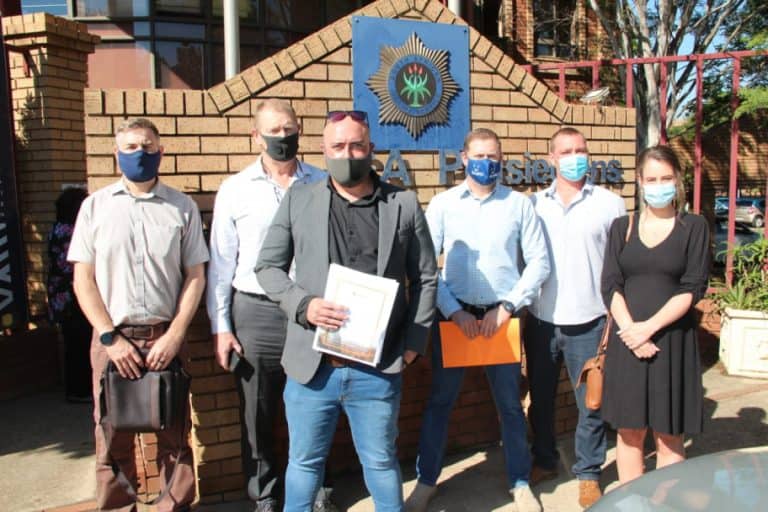79-year-old woman brutally murdered on Van Wyksdorp farm
Farm attacks must be treated as priority crimes – AfriForum
AfriForum is calling on the new, acting Minister of Police, Firoz Cachalia, to immediately classify farm attacks as a national priority crime. This request follows in response to another farm murder this past weekend in which 79-year-old Valery Ezner was murdered on a farm approximately 2 km from Van Wyksdorp in the Western Cape.
The request, which has been made repeatedly to previous Police Ministers, has also been made again to the Directorate for Priority Crime Investigation (Hawks). AfriForum emphasises that previous ministers did not recognise the seriousness of farm murders, but that Cachalia has the opportunity to promote the faltering trust in the South African Police Service (SAPS) if farm murders are deemed a priority crime.
For weeks before the deadly attack, Ezner had complained about fences on her farm being cut, animals poisoned and illegal grazing taking place. According to her, she received little to no help from the local SAPS.
“How many elderly people must be tortured and murdered in their homes before the government admits this is not just ‘ordinary crime’? Farm attacks are uniquely brutal, increasingly well-planned and are destroying the sense of safety in rural communities. This is why we are again demanding that farm attacks be formally classified as national priority violent crimes — just like cash-in-transit heists and rhino poaching,” says Jacques Broodryk, AfriForum’s Chief Spokesperson for Community Safety.
In a formal motivation submitted to Genl. Fannie Masemola, National Police Commissioner, earlier this year, AfriForum outlined clear legal and strategic grounds for this classification under Section 17D of the Sout African Police Service Act. Farm attacks meet and exceed the criteria currently used in defining priority crimes. These criteria include extremely violent and premeditated assaults that often involve torture and executions; the targeting of vulnerable victims, especially elderly farmers and workers, who live in remote areas; and the use of an organised modus operandi that is similar to that used by syndicates (such as tracking victims’ movements and employing coordinated movements and escape plans). Further criteria that farm attacks also meet to be classified as national priority crimes are the national economic and food security impact of the crimes, especially since farm attacks destabilise productive farms; and the occurrence of high levels of public fear, community trauma and political incitement.
AfriForum also pointed out the inconsistency in the state’s response to other categories of violent crime.
“If cash-in-transit robberies can justify dedicated national task teams and specialised resources, why are rural murders like this one not given the same attention? Farmers are food producers, job creators and protectors of our rural economy – and it is in every citizen’s interest that crime against this critical sector be tackled with greater seriousness,” adds Broodryk.
As part of AfriForum’s request for the classification of farm attacks as national priority crimes, the civil rights organisation is also calling for the immediate establishment of a dedicated Hawks task force for rural crimes. This task force must be empowered with the necessary mandate and capacity to investigate farm attacks on a national level. The team must also work closely with the SAPS’ rural safety units, farming organisations and community safety networks to ensure a coordinated and effective response.
“Classifying farm attacks as priority crimes is not symbolic — it’s strategic. It means more resources, faster response times, better investigations and proper justice for the victims. Valery Ezner’s death should not be just another name lost on a list of farm murder victims. It must be a turning point,” concludes Broodryk.
AfriForum continues to offer support to affected communities and will monitor the investigation of this case closely to ensure accountability and justice.











